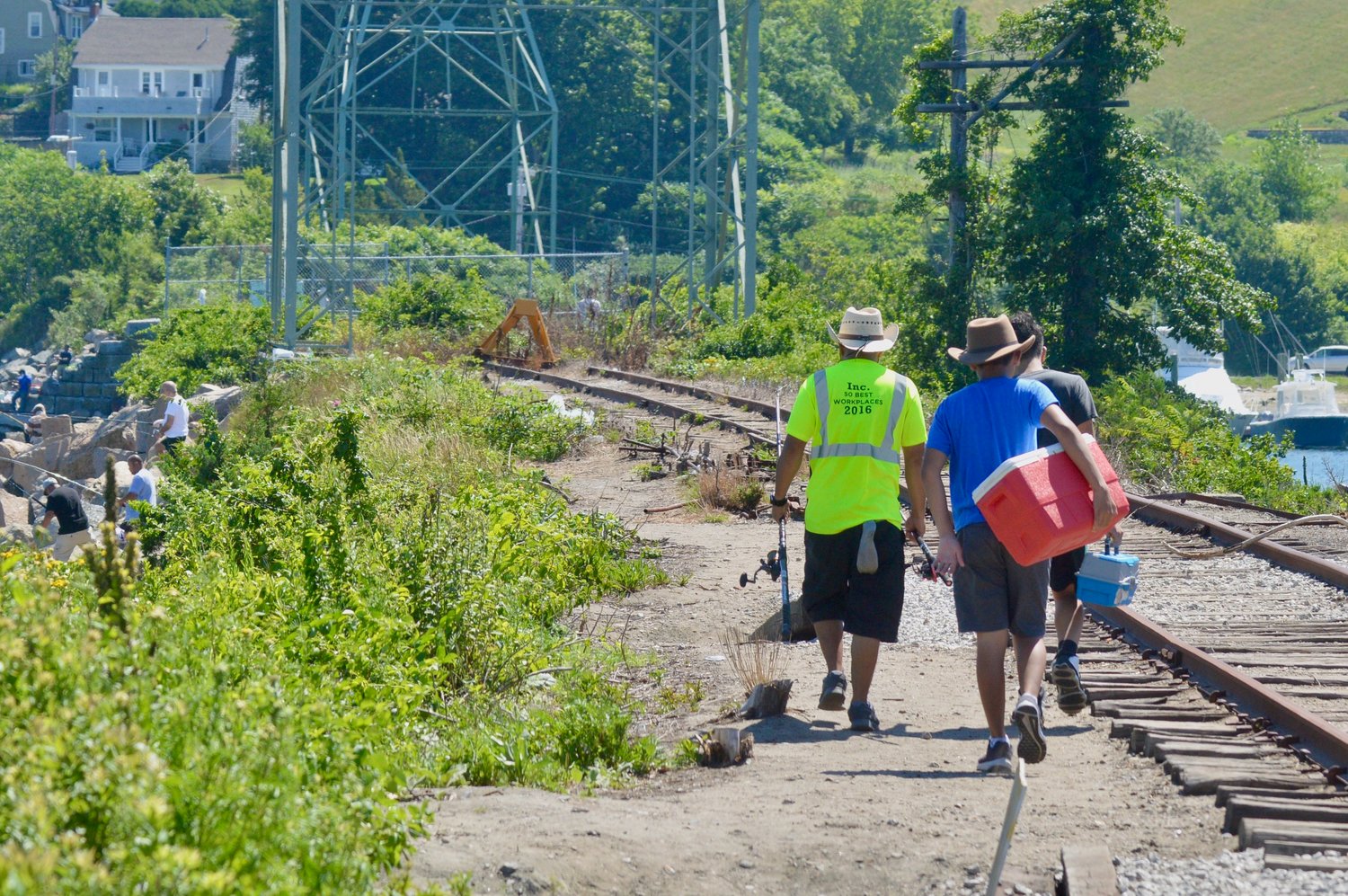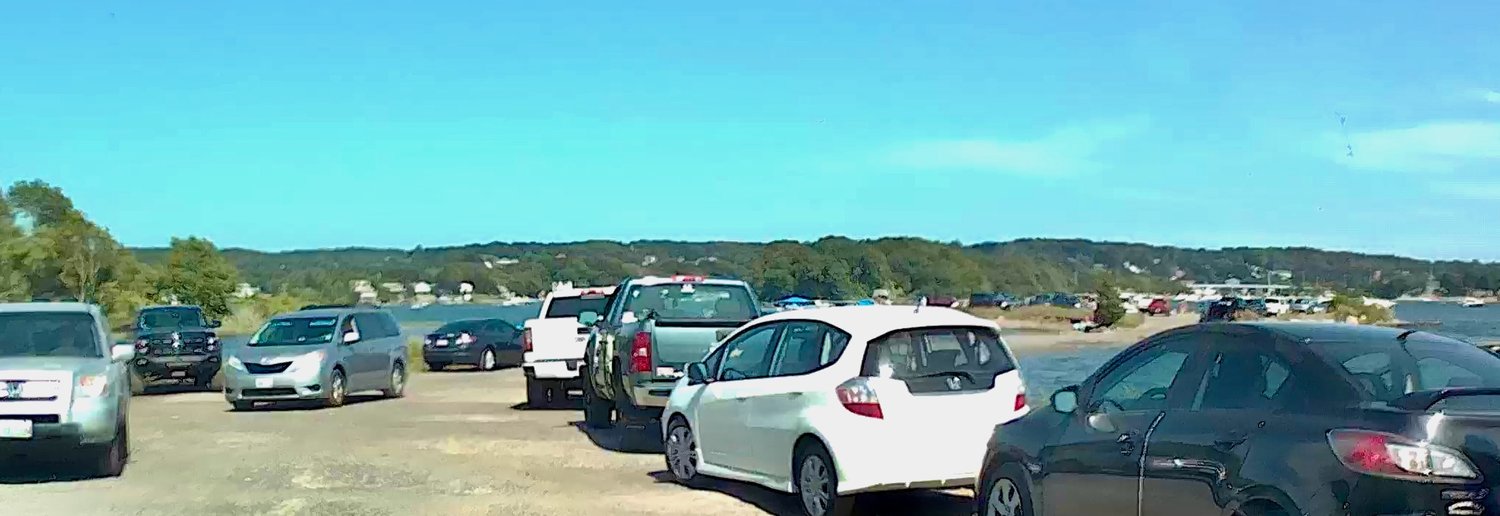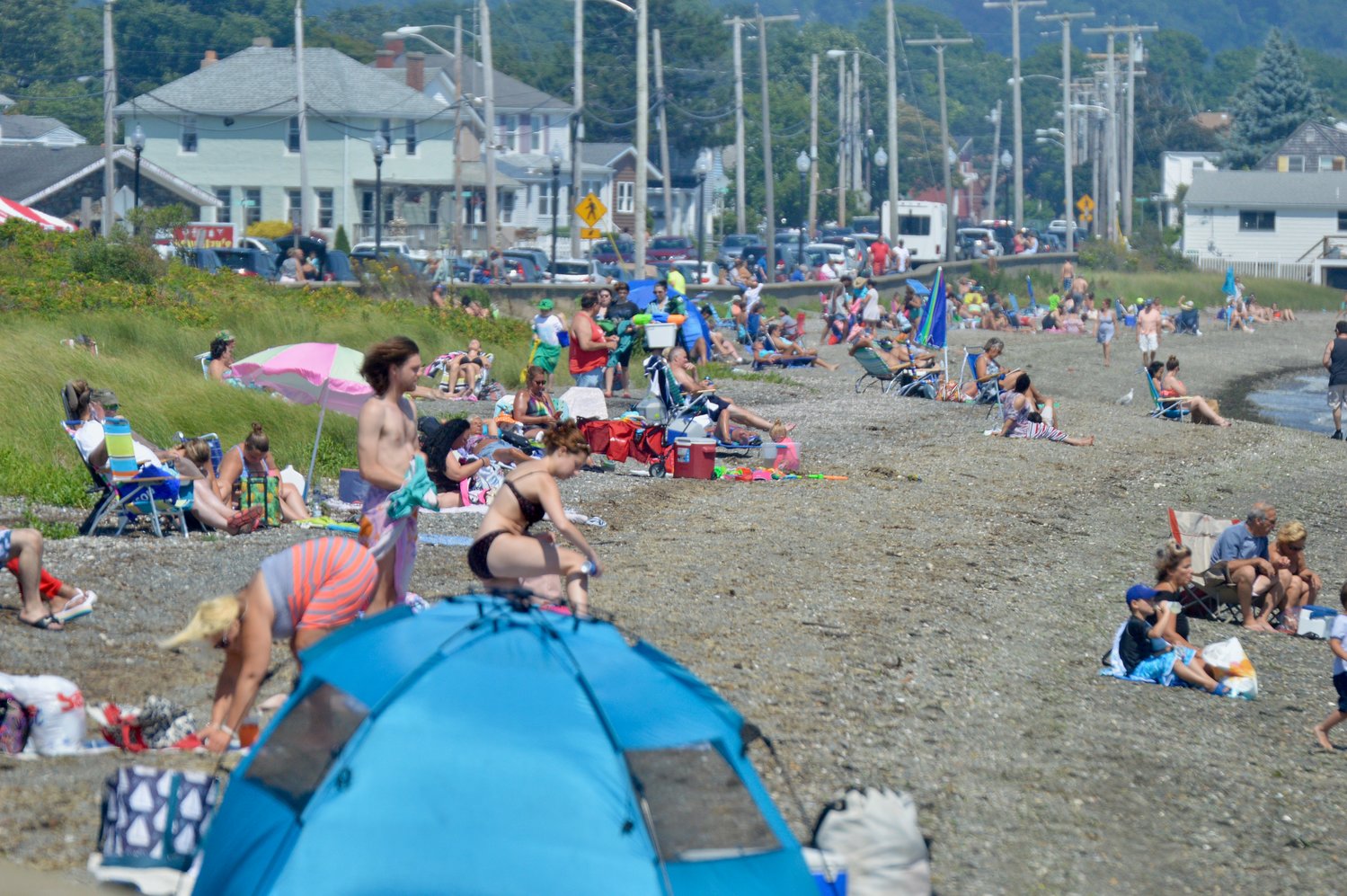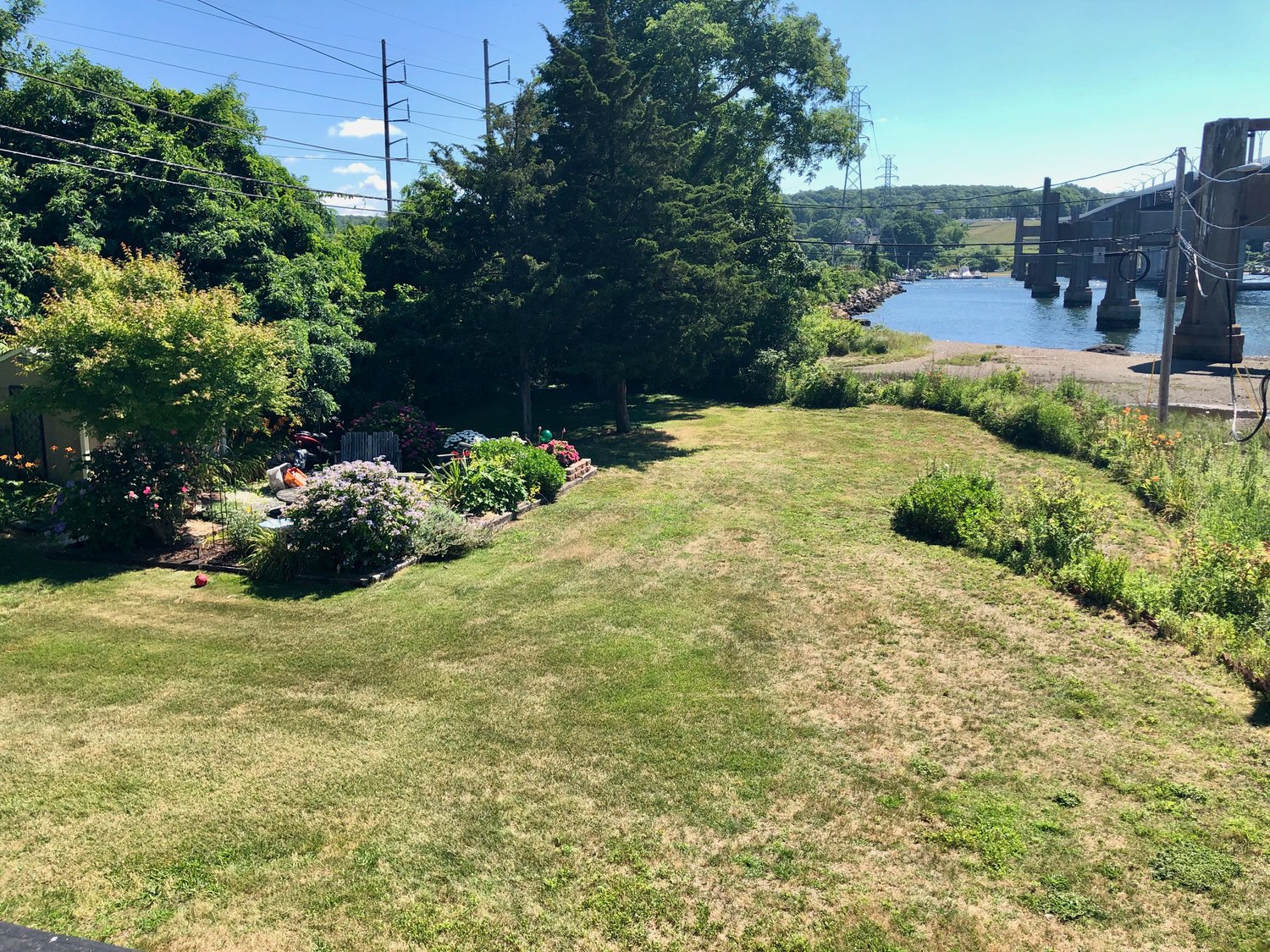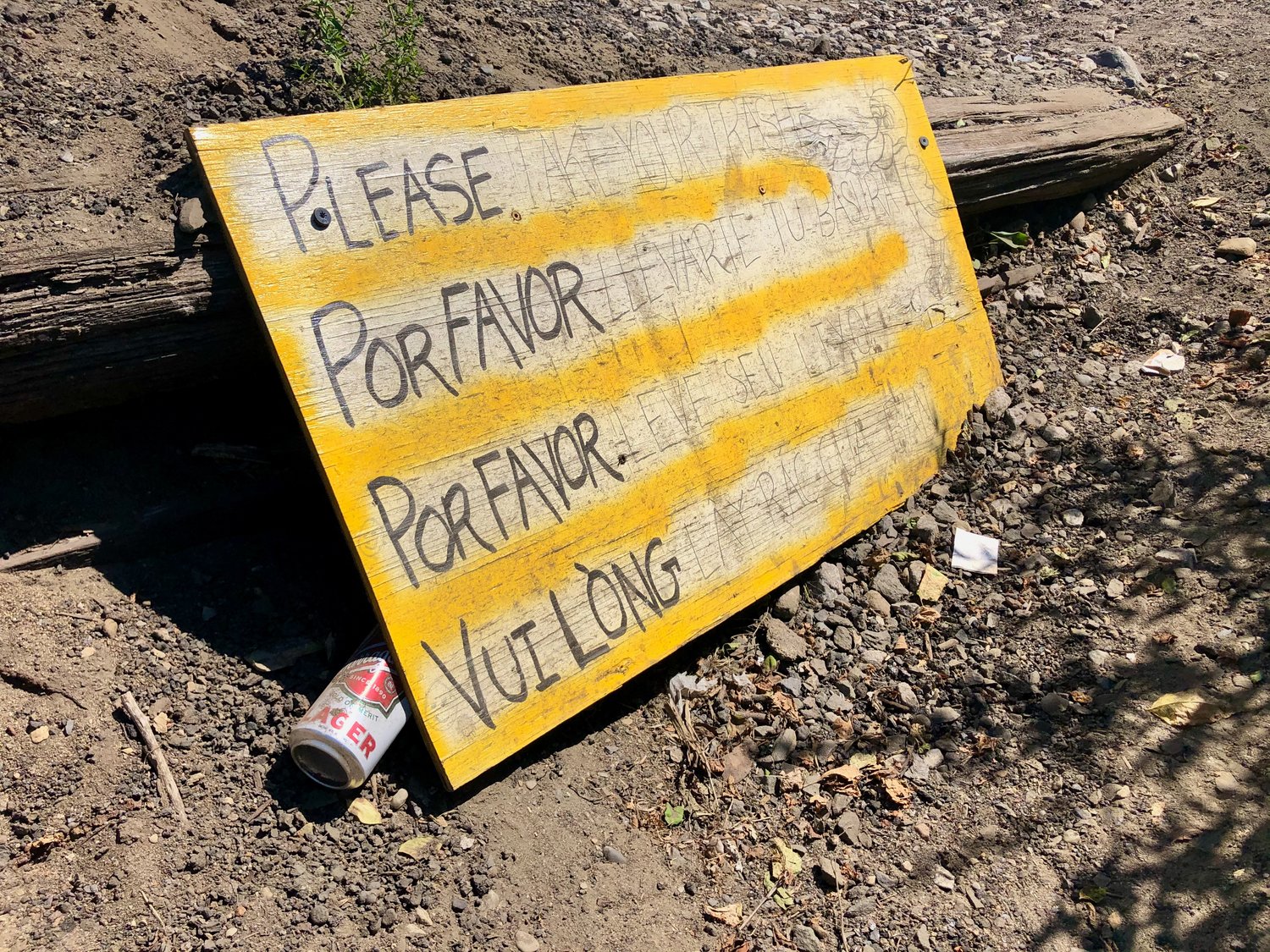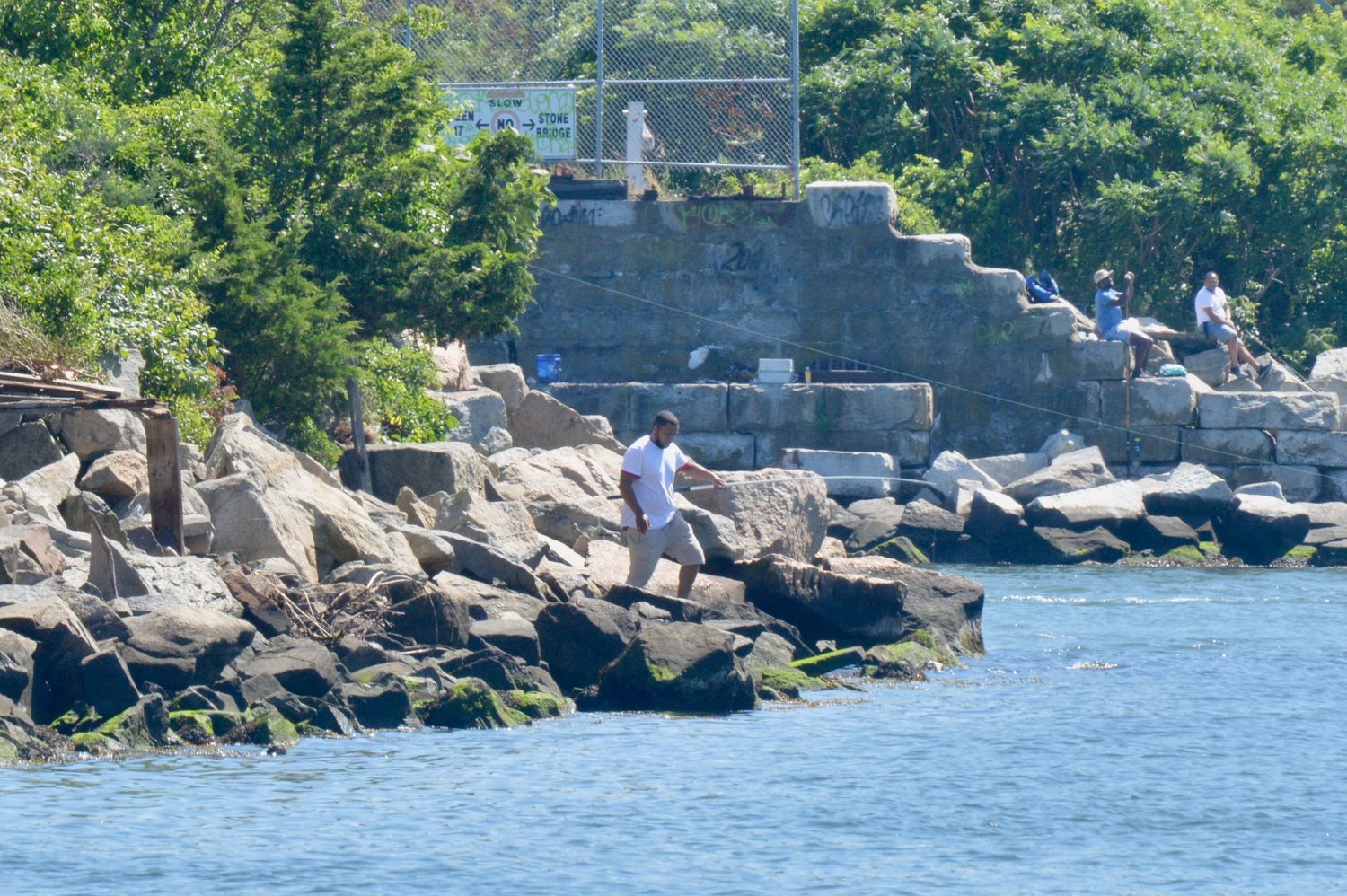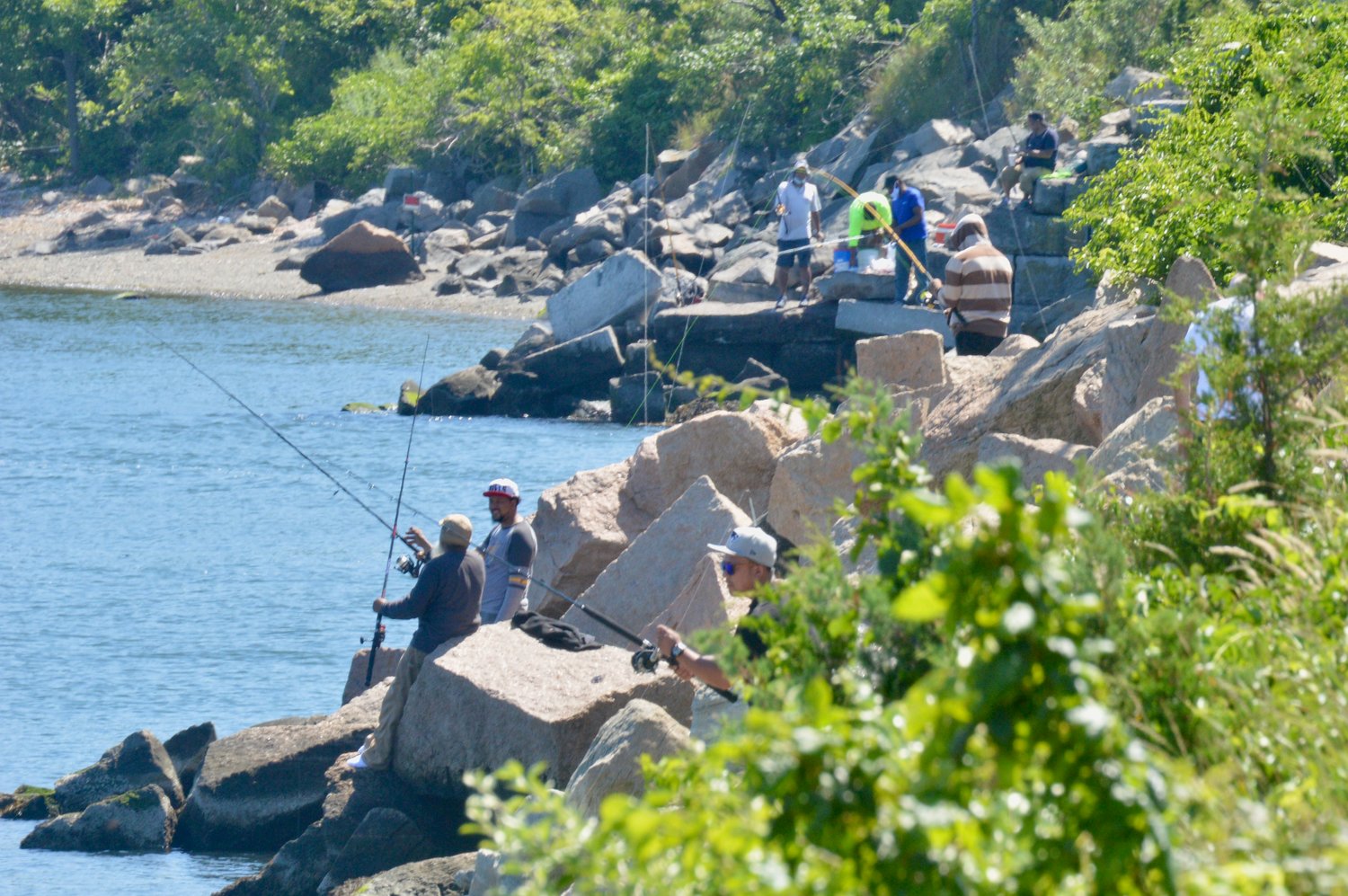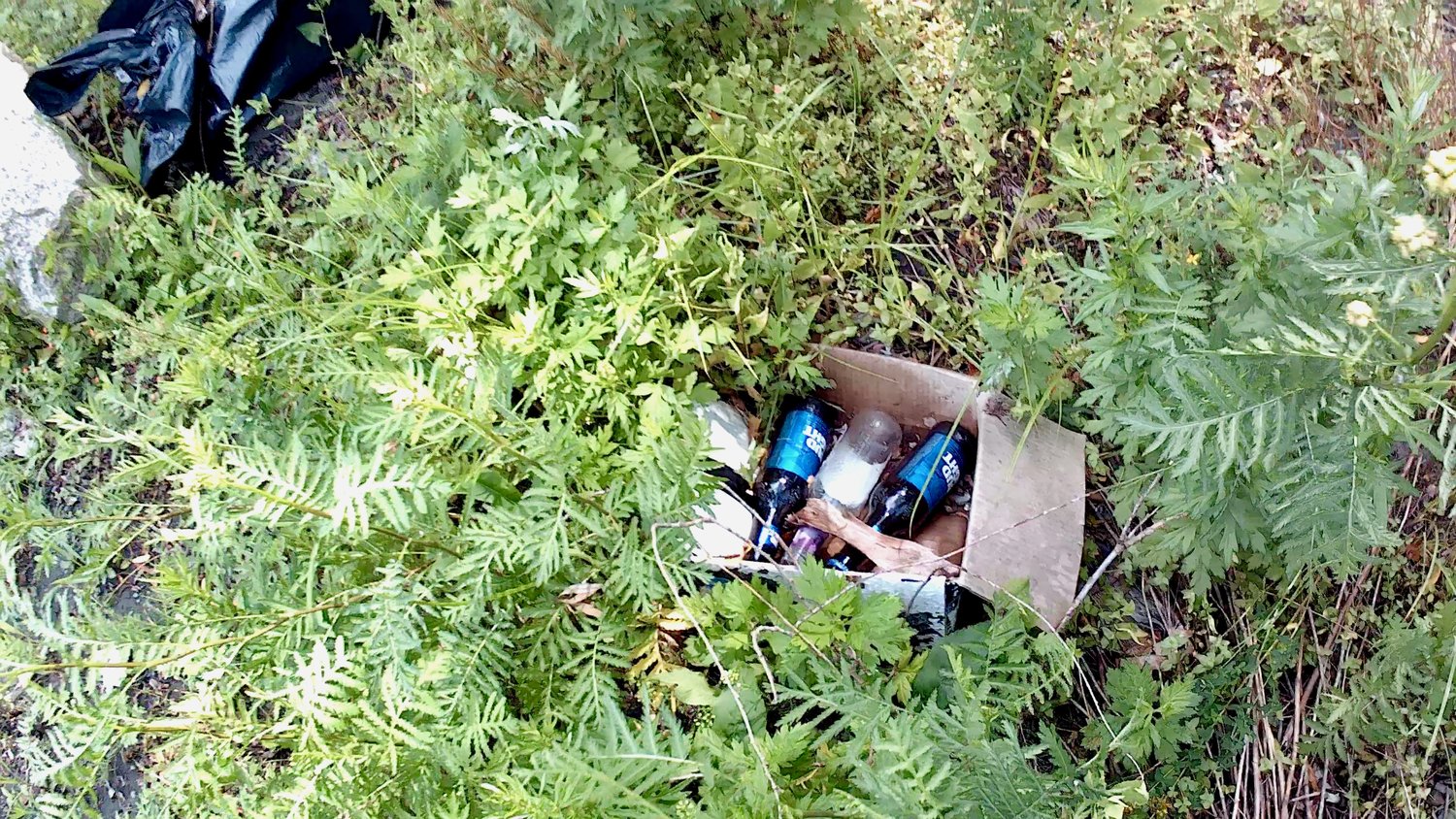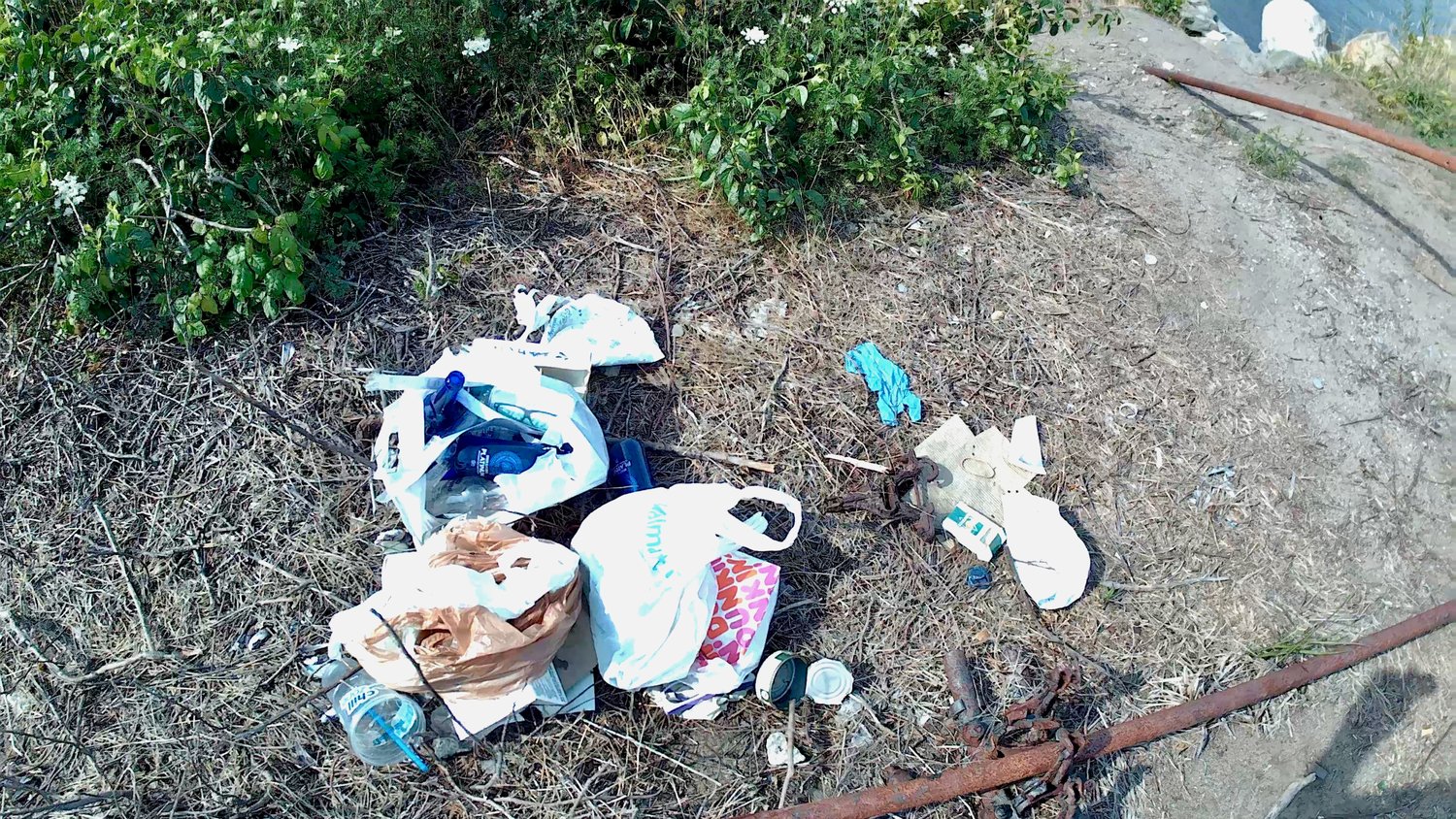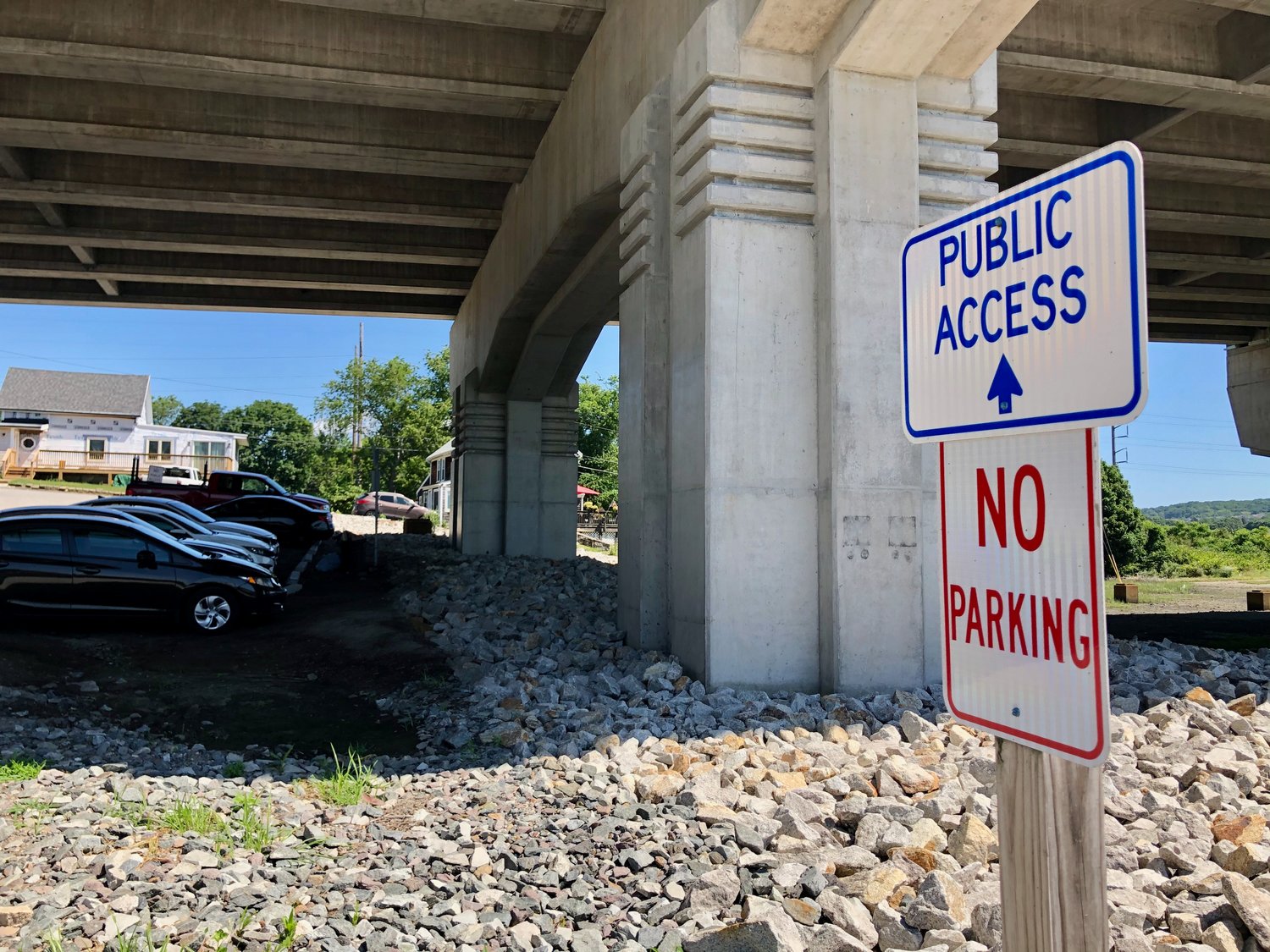- WEDNESDAY, APRIL 24, 2024
Banned from town beaches, nonresidents go elsewhere in Portsmouth
Out-of-towners are finding alternative shoreline spots where neighbors say they litter, trespass over private property, make noise and risk their own safety
PORTSMOUTH — Vicky Newbold said she has video of about 30 strangers stomping through her backyard underneath the Sakonnet River Bridge to get to their favorite fishing spot along the …
This item is available in full to subscribers.
Please log in to continue |
Register to post eventsIf you'd like to post an event to our calendar, you can create a free account by clicking here. Note that free accounts do not have access to our subscriber-only content. |
Day pass subscribers
Are you a day pass subscriber who needs to log in? Click here to continue.
Banned from town beaches, nonresidents go elsewhere in Portsmouth
Out-of-towners are finding alternative shoreline spots where neighbors say they litter, trespass over private property, make noise and risk their own safety

PORTSMOUTH — Vicky Newbold said she has video of about 30 strangers stomping through her backyard underneath the Sakonnet River Bridge to get to their favorite fishing spot along the railroad tracks.
“It was like Moses leading them through the Promised Land,” exclaimed Ms. Newbold, who said she often receives an obscene gesture or is told to shut her “effin’ mouth” whenever she reminds people they’re on private property.
At Gull Cove off Route 24 North, retired firefighter David Souza said the beach is overcrowded with vehicles full of people coming to drink and party, leaving nip bottles, cans of beer and assorted trash scattered along the shoreline and in the grass.
“It’s just mobbed on the weekends. There are so many cars down there,” Mr. Souza said.
And at Pheasant Beach, a picturesque stretch of shoreline overlooking Narragansett Bay on the town’s west side, neighbors are coming across wads of used toilet paper and wipes left on the ground behind the bushes, along with other trash.
This summer, there’s been a noticeable uptick in the number of complaints about out-of-towners — especially those with Massachusetts license plates — visiting local shorelines and leaving a real mess behind.
Some officials think they know why: the town’s decision, back in May, to restrict access to Sandy Point and McCorrie Point beaches to just residents due to COVID-19 concerns. Without access to the town’s two town beaches, nonresidents are seeking alternative spots to dip their toes or reel in a fish.
“I definitely understand the issue of driving people to other beaches. I get it,” said Town Administrator Richard Rainer, Jr. “The problem used to be just down at McCorrie. Now it’s like whack-a-mole; as soon as we get one area under control, two more crop up.”
Police Chief Brian Peters agrees that the increased number of complaints at certain coastal access points may be an unforeseen consequence of restricting access to Sandy Point and McCorrie Point.
Underneath the Sakonnet Bridge
“We’ve seen a huge increase in the number of calls down in that area,” Chief Peters said of the homes under or near the Sakonnet River Bridge at the end of Riverside Avenue, a spot known to locals as the “Lower Hummocks.”
“I think we’ve been down there more than 50 times this year compared to last year, which was only a handful,” he said. “It’s fishermen and families that are going down to that area. We have cited people there for open containers, un-permitted fires. It’s also causing some parking issues.”
Ms. Newbold, whose home was built by her great-grandfather in 1900, said she’s been complaining about the unwanted visitors for about a decade, but her concerns have mainly fallen on deaf ears. Although she’s not convinced more people are descending upon the area because of new rules at town beaches, Ms. Newbold said things have gotten worse this year.
“The police really can’t do anything. I can’t really fault the Portsmouth Police; they’ve been responsive,” she said, noting that the property and street leading down to the neighborhood are owned by the state.
“The state created a park with absolutely no rules,” she said. “Any other place, it would be closed from dusk to dawn, with limitations on on-street parking. A couple of weeks ago, there were cars parked all the way out to Hummocks Avenue. This is a small, dead-end, cul-de-sac community. It’s a neighborhood; not a throughway. This year’s been horrible.”
When the state opened the new Sakonnet River Bridge in 2012, the area surrounding her home was declared a public right-of-way, and a parking lot just a short distance from her home was established. The lot has no lines, however, so there’s no definitive limit on the number of vehicles that can park. The street is also lacking no-parking signs, she said.
“An ambulance or a fire truck wouldn’t be able to negotiate that when there are cars parked all along there,” said Ms. Newbold, pointing to a cul-de-sac that was once a full circle before the state reconfigured the traffic pattern. “I think there should be no parking on the street, or, at the very least, it should be resident parking.”
Lights needed
When the bridge was opened, she said neighbors were assured there would be lights and even cameras installed underneath, as it’s a “homeland security issue because it’s a bridge,” Ms. Newbold said. But the lights never came, and when she hears music and bottles breaking outside her door, she can’t see anything.
“You call the police and they say they’ll come. ‘Can you give us a description?’ No, I can’t; it’s pitch black under there,” she said.
The state gave her a little relief a few years back, when it installed orange construction fencing that kept people from walking through her front yard to get to the railroad tracks. But visitors have since created a new path just beyond her trees and greenery on the east side of her yard, through which they trespass during high tide.
“Every single car out here has Massachusetts plates. Yes, people should be able to access the water; I don’t have a problem with that. But I went online to look up water access points, and this was the only one I found with parking; they’re all drop-off,” she said.
Families are hauling coolers, beer and grills to the site and spending the entire day there, she said.
“Which to me brings up another health issue: There are no rest facilities down here. They’re going to the bathroom somewhere,” Ms. Newbold said. “They could pay $20 and go to a nice, sandy beach. There’s a reason they’re coming here, and it’s because they can do whatever they want. They’re down there drinking, they’re doing drugs. They’re doing whatever they want to do as long as they want to do it.”
She’s also concerned about the safety of those out-of-staters, especially when the tide is changing. There’s a very strong current under the bridge, and the drop-offs are steep in places, she said.
“At high tide, you take two steps and you’re over your head. They’re coming down here with babies, children. If any one of those kids fell off from those rocks and into the water, I don’t know if anyone could get to them,” she said.
The area is managed by the Rhode Island Turnpike and Bridge Authority (RITBA). After being contacted by The Portsmouth Times, RITBA issued the following statement:
“RITBA is working closely with a local neighborhood association, the Town of Portsmouth, and the R.I. Coastal Resources Management Council to address the concerns of nearby residents related to increased parking and access to the Sakonnet River beneath the Sakonnet River Bridge.
“Due to the increased volume of people accessing the water beneath the bridge, RITBA’s maintenance team is continuing to routinely clean and maintain the property daily and is working with Portsmouth officials to explore ways to mitigate some of the parking concerns expressed by residents.
“RITBA strives to be a good neighbor in all of its host communities and is committed to doing its part to maintain a safe and clean environment.”
Gull Cove
Ms. Souza, who keeps a watchful eye over the goings-on at Gull Cove, camera in hand, shares similar safety concerns about that location.
In July 2015, a 13-year-old Providence boy drowned in the waters off the Gull Cove State Boat Ramp. The boy, who could not swim, was wading in the water with his father and two other siblings when he went under. Rescue workers said the steep drop-off in the area probably contributed to the boy’s death.
“It was designed for fishing, not swimming,” said Mr. Souza, who’s also concerned about the use of drugs and alcohol at the cove. “It’s a dangerous situation. They’re down there drinking all day and then they’re getting back into their cars.”
Then there’s the trash — including dirty diapers and broken glass — and open fires, he said.
He’s contacted the state Department of Environmental Management (DEM), which he said is aware of the situation and pledged to address the problems. As of Monday, however, nothing has been done, said Mr. Souza, who would like to see the entire area shut down.
Mr. Souza also believes nonresidents are going there because other beaches are restricting them — or because they’d rather not pay a parking fee. “If you go down there, it’s 90 percent out-of-state plates. They come here and it’s free,” he said.
Island Park, Teddy’s Beach
Mr. Rainer said the restrictions on Sandy Point and McCorrie Point beaches have also driven some out-of-towners to Island Park Beach and Teddy’s Beach. Although trash hasn’t been a huge issue — the town has “carry in, carry out” signs posted in the area — the crowds are a more pressing issue due to COVID-19, he said.
“Island Park … I don’t even know what to say. Police are down there all the time,” Mr. Rainer said. “The thing is, people are counting cars. Someone will say to me, ‘There are 48 cars down there and 33 are from out of state; can’t you do anything about it?’ No, I can’t. I can’t restrict people from out of state being in Rhode Island.”
The town knows where the hotspots are, the administrator said, and plans to get more patrols out to those areas, even if it means more overtime. He urged residents to call police immediately when they see a problem, as sending photos and e-mails “after the fact” doesn’t do much good.
As for Ms. Newbold at the Hummocks, she’s still waiting for someone at the state to do something definitive to improve the situation.
“The state doesn’t seem to care, and haven’t cared all along. They’ve come down and done a few things, kind of just to shut me up mainly. I don’t know why this has been allowed to go for so long.
“It used to be just a guy and his son going fishing — and they were from Rhode Island.”
Please support your local news coverage
The COVID-19 pandemic has brought the local economy - and many of the advertisers who support our work - to a near standstill. During this unprecedented challenge, we continue to make our coronavirus coverage free to everyone at eastbayri.com - we believe it is our mission is to deliver vital information to our communities. If you believe local news is essential, especially during this crisis, please consider a tax-deductible donation.
Thank you for your support!
Matt Hayes, Portsmouth Times Publisher
Other items that may interest you

